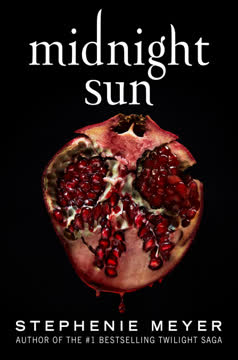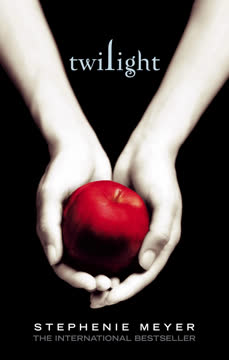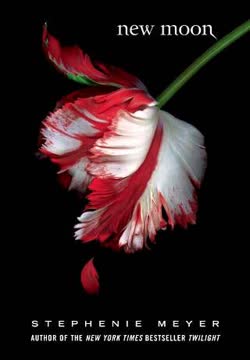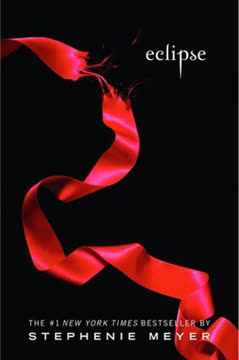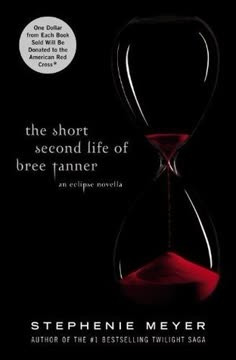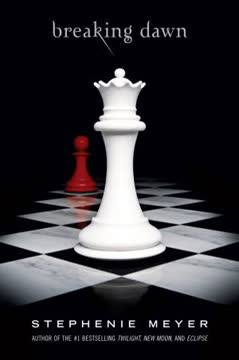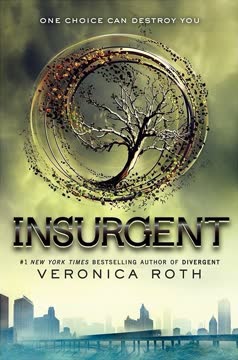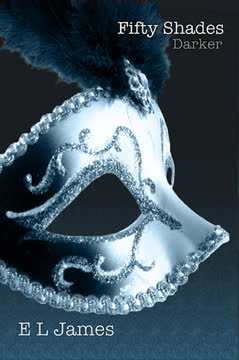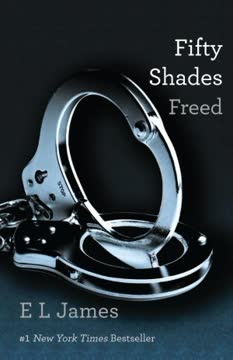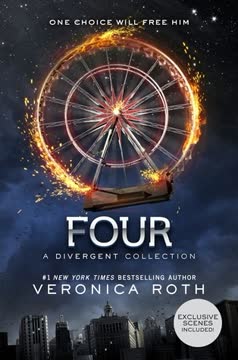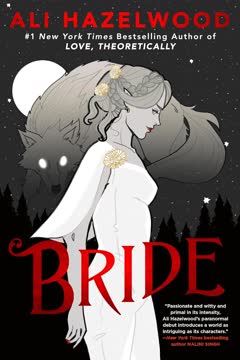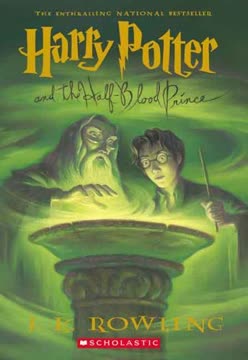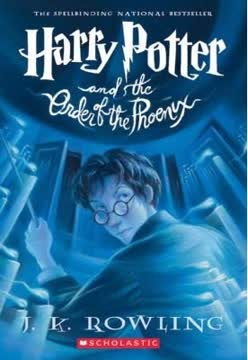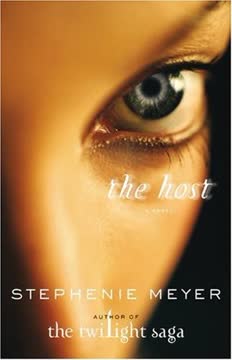Plot Summary
Forks: A Predator's Purgatory
Edward Cullen, a vampire with the ability to read minds, endures the endless monotony of high school in Forks, Washington, with his adoptive vampire family. He views his daily life as a form of purgatory, a penance for his monstrous nature. The Cullens live by a strict code, feeding only on animal blood, and Edward's mind is constantly bombarded by the thoughts of those around him—except for his family, whose thoughts he tries to respect, and the humans, whose thoughts he finds tedious. This routine is shattered by the arrival of a new student, Bella Swan, whose mind is a complete blank to him. Her presence, at first, is just another ripple in the dull surface of his existence, but soon, she becomes the center of his world.
The Girl I Can't Read
Bella Swan's arrival at Forks High School is met with the usual small-town curiosity, but for Edward, she is an anomaly. He cannot hear her thoughts, and this silence is both infuriating and fascinating. As he observes her, he is drawn to her vulnerability, her awkwardness, and the way she seems to see through the superficiality of high school life. Edward's curiosity grows into obsession as he tries to decipher her, both for the safety of his family and for his own sanity. Her scent, however, is intoxicating—unlike anything he has ever encountered, it threatens to shatter his carefully constructed self-control.
Blood and Temptation
Sitting next to Bella in biology, Edward is overwhelmed by the scent of her blood, which is more alluring than any he has ever known. The monster within him, long suppressed, surges to the surface, and he is moments away from killing her and everyone in the room. Only the memory of his father-figure Carlisle's compassion and his own desperate willpower stop him. Fleeing Forks for Alaska, Edward tries to escape the temptation, but Bella's face haunts him. He returns, determined to avoid her, but finds that he cannot stay away. The struggle between his predatory instincts and his desire to protect her becomes the central conflict of his existence.
The Monster's Dilemma
Edward's internal battle intensifies as he oscillates between wanting to be near Bella and fearing he will destroy her. He tries to change his schedule, to keep his distance, but fate and circumstance continually throw them together. His family, especially Alice, who can see the future, and Jasper, who struggles with his own self-control, become involved in the dilemma. Edward's obsession with Bella grows, and he is forced to confront the reality that he is both her greatest protector and her greatest threat. The monster within him is never far from the surface, and every moment with Bella is a test of his will.
A Family of Strangers
Edward's relationship with Bella brings tension to the Cullen family. Rosalie resents the risk Bella poses to their secrecy, while Emmett is more amused. Alice, with her visions, becomes Bella's unexpected ally, and Jasper's struggle with self-control is mirrored in Edward's own. Carlisle, the patriarch, is compassionate and wise, guiding Edward through his turmoil. The family's carefully maintained facade is threatened as Bella becomes more entangled in their world, and the possibility of exposure looms. The Cullens must decide how far they are willing to go to protect both their secret and Bella.
The Pull of Bella
Edward's obsession with Bella deepens into love as he learns more about her—her kindness, her selflessness, her ability to put others before herself. He watches her sleep, listens to her talk in her dreams, and is captivated by her every gesture. Bella, for her part, is drawn to Edward's mystery and beauty, even as she senses the danger he represents. Their connection grows, and Edward is forced to reveal his true nature. Bella's acceptance of him, monster and all, is both a relief and a new source of fear. He is now responsible for her life in ways he never imagined.
The Hunter's Game
The fragile peace is shattered when a nomadic vampire coven arrives in Forks. James, a tracker with an obsessive talent for the hunt, catches Bella's scent and is instantly fixated on her. The Cullens rally to protect Bella, devising a plan to lead James away from Forks. The family splits up, with Alice and Jasper taking Bella to Phoenix, while Edward, Emmett, and Carlisle try to mislead the tracker. The game becomes deadly as James proves to be a cunning and relentless adversary, and the stakes are nothing less than Bella's life.
Choices and Consequences
Bella, desperate to protect her loved ones, sacrifices herself by escaping Alice and Jasper's watchful eyes and going to meet James, who has lured her with the threat of harming her mother. The confrontation is brutal—James tortures Bella, breaking her bones and biting her hand, injecting her with venom. Edward and his family arrive just in time to destroy James, but not before Bella is gravely injured. Edward is faced with an impossible choice: let Bella become a vampire or try to save her humanity by sucking the venom from her blood, risking his own self-control.
The Price of Restraint
In the most harrowing test of his will, Edward manages to stop himself from killing Bella as he draws the venom from her blood. The act is both agony and ecstasy, as her blood is the sweetest he has ever tasted. With Carlisle's guidance and Alice's support, Edward saves Bella's life, but the guilt of what she has suffered because of him is overwhelming. Bella's recovery is slow, and Edward is haunted by the knowledge that his love for her will always put her in danger. The price of his restraint is a constant, aching fear for her safety.
The Dance of Danger
Bella heals, and life in Forks resumes its uneasy rhythm. Edward tries to give Bella a normal human experience, taking her to the prom despite her protests. The event is bittersweet—Bella wants Edward to turn her into a vampire so they can be together forever, but Edward refuses, determined to preserve her humanity. The dance is a symbol of the tension between their worlds, a moment of beauty shadowed by the ever-present threat of loss. Their love is real, but so are the dangers that come with it.
The Trap is Set
The Cullens' unity is put to the ultimate test as they work together to protect Bella and destroy James. Each member plays a crucial role—Alice's visions, Jasper's control, Emmett's strength, Rosalie's reluctant support, and Carlisle's wisdom. The family's bonds are strained but ultimately hold, proving that their chosen way of life, though difficult, is possible. The trap they set for James is both a physical and moral battle, as they must confront not only the external threat but also the internal consequences of their choices.
Blood and Redemption
Edward's struggle with his nature reaches its climax as he is forced to confront the reality of what he is capable of. The act of saving Bella by drinking her blood is both a redemption and a reminder of the monster within. He is tormented by guilt and fear, questioning whether he can ever truly be worthy of Bella's love. The experience changes him, deepening his understanding of both his own darkness and his capacity for self-control. Redemption, for Edward, is not a single act but a lifelong struggle.
The Edge of Forever
As Bella recovers, the question of her mortality becomes unavoidable. She wants to be with Edward forever, but he is determined to keep her human, believing that her soul and her life are too precious to sacrifice. The tension between their desires is the heart of their relationship—love that is both eternal and impossibly fragile. Edward's promise to stay with Bella "for as long as it's best for her" is both a comfort and a warning. The future is uncertain, but their love endures in the present.
The Cost of Immortality
Edward is haunted by the knowledge that to keep Bella safe, he may one day have to leave her. The cost of immortality is the loss of everything that makes life precious—change, growth, and ultimately, death. He is determined to give Bella every human experience he can, even as he dreads the day when he will have to let her go. The burden of choice weighs heavily on him, and the guilt of survival is a constant companion. Immortality, for Edward, is not a gift but a curse.
The Promise of Now
Edward and Bella's love is defined by the tension between the present and the future. Every moment together is precious, but shadowed by the knowledge that it cannot last. Edward tries to focus on the now, giving Bella the best of himself while he can. The promise of forever is both a hope and a lie, and Edward is painfully aware of the limits of his own strength. Their happiness is real, but it is always on the edge of being lost.
The Guilt of Survival
After the ordeal in Phoenix, Edward is consumed by guilt for the pain and danger he has brought into Bella's life. He prays—not to his own God, but to Bella's—for the strength to do what is right, even if it means leaving her. The guilt of survival, of having condemned Bella to a life of fear and injury, is a burden he cannot escape. His love for her is both his salvation and his punishment, and he is left to wonder if he will ever be able to atone for what he has done.
The End and the Beginning
The story ends with Edward and Bella together, dancing at the prom, suspended between the end of one life and the beginning of another. The future is uncertain—Edward is determined to keep Bella human, while she longs to join him in immortality. Their love is a defiance of fate, a refusal to accept the limits imposed by their natures. The end is also a beginning, as they face the unknown together, bound by a love that is both impossible and inevitable.
Characters
Edward Cullen
Edward is a vampire tormented by his own nature and the burden of immortality. Gifted with the ability to read minds, he is isolated even among his own kind, until he meets Bella Swan, whose thoughts are closed to him. His relationship with Bella is defined by obsession, guilt, and a desperate desire to protect her from himself and the world. Edward's psyche is a battleground between the monster within and the man he wants to be. His love for Bella is both redemptive and destructive, forcing him to confront the darkest parts of himself. Over the course of the story, Edward evolves from a self-loathing predator to a man willing to sacrifice his own happiness for Bella's safety, though he is never free from the fear that he will ultimately destroy her.
Bella Swan
Bella is an ordinary human girl who becomes the extraordinary center of Edward's world. Her mind is a mystery to him, and her scent is an almost irresistible temptation. Bella is defined by her selflessness, her willingness to put others before herself, and her quiet courage in the face of danger. She is drawn to Edward's mystery and beauty, accepting him fully even after learning the truth about his nature. Bella's stubbornness is both her strength and her weakness—she refuses to be protected or controlled, and is willing to risk everything for love. Her journey is one of agency and sacrifice, as she chooses to embrace the dangers of Edward's world rather than live without him.
Alice Cullen
Alice is Edward's adoptive sister, a vampire with the ability to see the future. Her visions are crucial to the family's survival and to Bella's protection. Alice is cheerful, quirky, and fiercely loyal, quickly forming a deep bond with Bella. She is a bridge between the human and vampire worlds, and her optimism and foresight are a counterbalance to Edward's brooding nature. Psychologically, Alice is defined by her acceptance of fate and her willingness to act decisively, even when the future is uncertain.
Carlisle Cullen
Carlisle is the leader of the Cullen family, a vampire who has chosen to live by a strict code of nonviolence. He is a doctor, a healer, and a father figure to Edward and the others. Carlisle's compassion and wisdom are the foundation of the family's way of life, and his belief in redemption and self-control inspires those around him. He is patient, forgiving, and deeply moral, always seeking the best in others. Carlisle's relationship with Edward is central—he is both mentor and confessor, guiding Edward through his darkest moments.
Esme Cullen
Esme is the heart of the Cullen family, a mother figure whose love and acceptance hold the family together. She is gentle, empathetic, and fiercely protective of her children, both biological and adopted. Esme's nurturing nature extends to Bella, whom she quickly embraces as one of her own. Her psychological strength lies in her ability to forgive and to find joy in the family she has created, despite the losses and hardships of her past.
Rosalie Hale
Rosalie is the most beautiful of the Cullens, but her beauty is both a gift and a curse. She resents the loss of her humanity and is envious of Bella's choices and opportunities. Rosalie's pride and vanity often put her at odds with Edward and Bella, and her reluctance to accept Bella into the family is rooted in her own pain and regret. Psychologically, Rosalie is defined by her longing for a life she can never have, and her struggle to reconcile her past with her present.
Emmett Cullen
Emmett is the strongest of the Cullens, a big-hearted and playful presence in the family. He is fiercely loyal to his loved ones and relishes a good fight, but his strength is matched by his good humor and optimism. Emmett's relationship with Rosalie is passionate and uncomplicated, and he is quick to accept Bella as part of the family. Psychologically, Emmett is defined by his resilience and his ability to find joy even in the darkest circumstances.
Jasper Hale
Jasper is a vampire who struggles with self-control, having lived a violent life before joining the Cullens. He has the ability to sense and influence emotions, which makes him both sensitive and vulnerable. Jasper's internal battle mirrors Edward's, and his journey is one of redemption and self-mastery. He is deeply bonded to Alice, whose love and visions help anchor him. Psychologically, Jasper is defined by his guilt and his determination to overcome his past.
James
James is the primary antagonist, a tracker vampire whose obsession with the hunt makes him a deadly threat to Bella. He is cunning, resourceful, and utterly without conscience, viewing the pursuit of Bella as the ultimate game. James's psychology is that of a pure predator—he is driven by instinct and the thrill of the chase, and his lack of empathy makes him all the more dangerous. His presence forces Edward and the Cullens to confront the limits of their morality and the dangers of their world.
Charlie Swan
Charlie is Bella's father, the police chief of Forks. He is a quiet, reserved man who struggles to connect with his daughter but loves her deeply. Charlie's protective instincts are strong, but he is often at a loss in the face of Bella's independence and the dangers she faces. Psychologically, Charlie is defined by his sense of duty, his loyalty, and his quiet strength. His relationship with Bella is marked by unspoken love and a deep, if sometimes awkward, bond.
Plot Devices
Dual Perspective and Dramatic Irony
Midnight Sun is a retelling of Twilight from Edward's perspective, which allows for a rich exploration of dramatic irony. The reader knows the events of the original story, but seeing them through Edward's mind adds layers of tension, self-loathing, and psychological depth. The device of mind-reading creates a unique narrative structure, as Edward is privy to everyone's thoughts except Bella's, making her both a mystery and an obsession. This dual perspective heightens the stakes and allows for a deeper understanding of the characters' motivations and fears.
Foreshadowing and Visions of the Future
Alice's ability to see the future is a key plot device, used to foreshadow coming dangers and to explore the theme of fate versus free will. Her visions are mutable, changing with decisions, and serve as both warnings and sources of hope. The constant shifting of possible futures creates suspense and underscores the precariousness of Bella's safety. The narrative is structured around these visions, with the characters' choices shaping and reshaping the path ahead.
The Monster Within
The central plot device is Edward's battle with his own nature—the monster within. His self-loathing, guilt, and fear of harming Bella drive the narrative, making every interaction a potential disaster. The use of first-person introspection allows the reader to experience Edward's psychological torment, his rationalizations, and his desperate attempts at self-control. This internal conflict is mirrored in the external threats posed by James and the dangers of the vampire world.
The Human Versus the Immortal
The juxtaposition of Bella's ordinary human experiences—school, family, prom—with the extraordinary dangers of the vampire world is a recurring device. The narrative structure alternates between moments of normalcy and moments of high tension, emphasizing the cost of crossing between worlds. The use of prom as a climactic setting is symbolic of the tension between the desire for a normal life and the pull of the supernatural.
Sacrifice and Agency
Despite being the object of protection, Bella is not a passive damsel. Her choices—sacrificing herself for her mother, insisting on agency in her relationship with Edward, demanding to be turned—are central to the plot. The narrative structure allows for moments where Bella's will disrupts the plans of the vampires, forcing them to adapt. This device reinforces the theme that love is not just about protection, but about respecting the other's autonomy.
Analysis
Midnight Sun transforms the familiar story of Twilight by immersing the reader in Edward's tortured psyche, offering a modern meditation on desire, restraint, and the nature of monstrosity. Through Edward's eyes, the love story becomes a psychological thriller, where every moment is fraught with danger—not just from external threats, but from the hero's own nature. The book explores the ethics of power, the burden of immortality, and the cost of love that defies reason and fate. Bella's agency and selflessness challenge Edward's self-loathing, while the Cullens' chosen morality stands in stark contrast to the predatory world they inhabit. The narrative's use of mind-reading, foreshadowing, and dual perspective deepens the emotional stakes, making the story not just about forbidden romance, but about the struggle to choose humanity over instinct. Midnight Sun ultimately asks what it means to love selflessly, to fight one's own darkness, and to find meaning in a life defined by impossible choices.
Last updated:
FAQ
Synopsis & Basic Details
What is Midnight Sun about?
- Edward's Tormented Perspective: Midnight Sun retells the events of Twilight from Edward Cullen's point of view, offering deep insight into his internal struggles, his mind-reading abilities, and his intense, often agonizing, attraction to Bella Swan. The narrative explores his century-long existence as a vampire, his family's unique "vegetarian" lifestyle, and the constant battle against his predatory instincts.
- Forbidden Love & Danger: The core of the story revolves around Edward's burgeoning love for Bella, which is complicated by his vampiric nature. Her scent is an irresistible temptation, and her mind is uniquely closed to him, fueling his obsession. Their relationship is a constant dance with danger, as Edward grapples with the fear of harming her and the external threats posed by other vampires.
- Family Dynamics & Sacrifice: The book also delves into the intricate dynamics of the Cullen family, revealing their individual personalities, powers, and their collective commitment to protecting Bella. It highlights the sacrifices they make to maintain their chosen lifestyle and the lengths to which Edward and his family go to shield Bella from the supernatural world, culminating in a desperate fight against a tracker vampire.
Why should I read Midnight Sun?
- Unprecedented Psychological Depth: Readers gain unparalleled access to Edward's complex inner world, experiencing his self-loathing, guilt, and profound love in excruciating detail. This perspective transforms familiar scenes, revealing hidden motivations and emotional nuances that were only hinted at in Twilight.
- Enhanced World-Building & Lore: The narrative expands on the vampire lore, particularly Edward's unique abilities and the intricacies of the Cullen family's history and moral code. It offers a richer understanding of their daily lives, their struggles with temptation, and their interactions with the human world, making the supernatural elements feel more tangible and perilous.
- Fresh Interpretations of Key Moments: Iconic scenes from Twilight are recontextualized through Edward's eyes, providing new layers of meaning and emotional impact. Readers will find themselves re-evaluating characters and plot points, discovering subtle details and foreshadowing that were previously overlooked, making for a deeply engaging and thought-provoking read.
What is the background of Midnight Sun?
- Retelling of a Beloved Saga: Midnight Sun is a companion novel to Stephenie Meyer's Twilight series, specifically retelling the first book. It was initially conceived much earlier but was delayed due to an unauthorized leak of early drafts, leading to a long-awaited publication in 2020.
- Focus on Edward's Internal Monologue: The book's primary background is its narrative choice to shift the point of view entirely to Edward Cullen. This allows Meyer to explore themes of self-control, predatorial instinct, and the burden of immortality from a unique, non-human perspective, contrasting sharply with Bella's human viewpoint in the original.
- Exploration of Vampire Lore & Psychology: Beyond the romance, the background delves into the deeper aspects of vampire existence, including the origins of their powers, the psychological impact of immortality, and the constant struggle to maintain a moral compass in a world driven by primal urges. It enriches the established lore with Edward's personal history and his family's collective journey.
What are the most memorable quotes in Midnight Sun?
- "Era il momento della giornata in cui, più di tutti gli altri, desideravo di poter dormire." (Chapter 1): This opening line immediately establishes Edward's profound weariness and the monotonous purgatory of his existence, setting the tone for his internal struggle and longing for an escape from his eternal vigilance. It encapsulates his deep-seated ennui before Bella's arrival.
- "Io ero un vampiro e lei aveva il sangue più dolce che avessi mai annusato in più di ottant'anni." (Chapter 1): This quote marks the pivotal moment of Bella's first appearance in biology class, vividly illustrating the overwhelming, primal temptation she represents for Edward. It highlights the central conflict between his monstrous nature and his burgeoning desire to protect her, a struggle that defines his entire narrative.
- "Così, il leone si innamorò dell'agnello... Che agnello stupido. Che leone pazzo e masochista." (Chapter 18): This exchange, a direct reference to Bella's line in Twilight, is profoundly recontextualized through Edward's internal monologue. It reveals his self-awareness of the inherent danger he poses to Bella, his self-loathing for his "masochistic" love, and his simultaneous admiration for her "stupid" courage in loving him back.
What writing style, narrative choices, and literary techniques does Stephenie Meyer use?
- First-Person Introspection: Meyer employs a deeply immersive first-person narrative from Edward's perspective, allowing readers direct access to his thoughts, emotions, and sensory experiences. This choice is crucial for exploring his internal conflict and provides a stark contrast to Bella's more externalized narration in Twilight.
- Sensory Detail & Hyper-Awareness: The writing style is characterized by an abundance of sensory details, particularly focusing on scent, sound, and touch, reflecting Edward's heightened vampiric senses. This technique vividly portrays his constant struggle with Bella's intoxicating scent and the overwhelming cacophony of human thoughts.
- Dramatic Irony & Foreshadowing: Meyer heavily utilizes dramatic irony, as readers are often aware of future events or Bella's true feelings before Edward fully comprehends them. Alice's visions serve as a direct form of foreshadowing, creating suspense and emphasizing the theme of fate versus free will, while Edward's internal monologues often reveal his misinterpretations or delayed realizations.
Hidden Details & Subtle Connections
What are some minor details that add significant meaning?
- Edward's Music Choices: Edward's internal soundtrack, particularly his preference for classical music like Debussy's "Clair de lune" (Chapter 6), subtly reflects his old-world soul and his attempts to maintain a sense of calm and beauty amidst his internal turmoil. The contrast with Bella's Linkin Park CD (Chapter 14) highlights their initial differences and the cultural gap he navigates.
- Rosalie's Jealousy of Bella's Humanity: Beyond her vanity, Rosalie's deep-seated resentment towards Bella stems from Bella's humanity and the choices she still possesses (Chapter 12). Rosalie's thought, "Lei ha la possibilità di fare tutto, Edward... Tutte quelle che io ho perduto," reveals her profound regret over her own transformation and her envy of Bella's mortal life, adding a tragic layer to her antagonism.
- Charlie's Partially Hidden Thoughts: Edward notes that Charlie's thoughts are "parzialmente nascosti, non assenti" (Chapter 3), a subtle detail that foreshadows Bella's own unique mental shield. This hints at a genetic predisposition within the Swan family to resist psychic abilities, making Bella's immunity to Edward's mind-reading less of an anomaly and more of a familial trait.
What are some subtle foreshadowing and callbacks?
- The "Lion and the Lamb" Metaphor: Edward's internal reflection, "Così, il leone si innamorò dell'agnello... Che agnello stupido... Che leone pazzo e masochista" (Chapter 18), is a direct callback to Bella's famous line in Twilight. This foreshadows the dangerous, self-sacrificing nature of their love from Edward's perspective, highlighting his awareness of the inherent imbalance and the pain he anticipates.
- Alice's Unexplained Premonitions: Alice's seemingly random purchase of a white, long-sleeved cotton shirt years before Bella's arrival (Chapter 15), which Edward later wears to reveal his sparkling skin, subtly foreshadows the inevitability of their meeting and the specific circumstances of his revelation. It suggests a deeper, unconscious foresight in Alice's gift, even beyond her conscious understanding.
- Bella's "Too Green" Dream: Bella's sleep-talking about Forks being "troppo verde" (Chapter 7) is a subtle callback to her initial discomfort with the perpetually overcast and lush environment. From Edward's perspective, this detail gains significance as he later realizes her preference for the "minimalism" and "openness" of Phoenix, hinting at her deeper desire for clarity and honesty, which he struggles to provide.
Who are the most significant supporting characters?
- Alice Cullen: The Strategic Visionary: Alice's role extends beyond mere foresight; she actively manipulates events and people (including her own family) to steer outcomes towards what she perceives as the "best" future for Edward and Bella. Her meticulous planning, from orchestrating Edward's first meeting with Bella's mother to devising the elaborate escape from James, showcases her as a master strategist, not just a passive seer. Her visions are a constant, dynamic force shaping the plot.
- Carlisle Cullen: The Moral Architect: Carlisle is not just a compassionate patriarch but the philosophical and ethical architect of the Cullen family's existence. His centuries of self-control and dedication to healing provide Edward with a crucial moral compass. His willingness to compromise and his unwavering belief in Edward's goodness are pivotal, especially during Edward's darkest moments of temptation and guilt. Carlisle's quiet strength and unwavering principles are the bedrock upon which Edward builds his own restraint.
- Emmett Cullen: The Unconventional Confidant: Emmett, often perceived as the boisterous and simple-minded brother, serves as an unexpected source of blunt honesty and emotional grounding for Edward. His straightforward, often humorous, reactions to Edward's turmoil (e.g., "O la uccide, oppure no. Tanto vale togliersi il pensiero" - Chapter 2) cut through Edward's self-pity and intellectualizations. He offers a raw, unfiltered perspective that, while sometimes insensitive, helps Edward confront the brutal realities of his situation.
Psychological, Emotional, & Relational Analysis
What are some unspoken motivations of the characters?
- Edward's Desire for Redemption: Beyond protecting Bella, Edward is deeply motivated by a subconscious desire for redemption for his past as a "monster" and his brief period as a vigilante. His intense self-loathing drives his extreme self-control and his desperate need to prove himself worthy of Bella's innocence, even if it means sacrificing his own happiness. This unspoken motivation fuels his internal torment.
- Bella's Need to Be Needed: Bella's selflessness and her tendency to put others first are not just virtues; they stem from an unspoken need to be indispensable. Her childhood experiences with her "wild" and "irresponsible" mother (Chapter 14) instilled in her a caretaker role, making her feel valued when she is needed. This subtly motivates her attraction to Edward, who, despite his power, is profoundly vulnerable to her.
- Rosalie's Longing for Humanity: Rosalie's overt jealousy of Bella isn't solely about Edward's attraction; it's rooted in her profound, unspoken longing for the human life she lost. Her resentment of Bella's choices and opportunities (Chapter 19) is a projection of her own unfulfilled desires for a normal life, a family, and the ability to age and experience mortality. This deep-seated regret fuels her antagonism towards Bella.
What psychological complexities do the characters exhibit?
- Edward's Masochistic Self-Punishment: Edward exhibits a complex form of masochism, deriving a strange, almost perverse, satisfaction from the pain of resisting Bella's blood. He actively seeks out this torment, believing it to be a penance for his monstrous nature and a test of his self-control. This psychological complexity highlights his deep self-loathing and his desperate attempt to atone for his existence.
- Bella's Inverted Survival Instincts: Bella displays a paradoxical psychological makeup where her survival instincts are inverted. Instead of fearing danger, she is drawn to it, particularly in Edward. Her lack of fear in the face of his vampiric nature (Chapter 6) and her willingness to sacrifice herself for others (Chapter 23) suggest a profound psychological resilience, but also a dangerous naiveté or a subconscious death wish that Edward struggles to comprehend.
- Jasper's Empathic Burden: Jasper's ability to manipulate emotions is a double-edged sword, making him acutely aware of the emotional turmoil around him, especially Edward's. This empathy, combined with his violent past, creates a constant psychological burden, as he struggles to maintain his own control while being bombarded by the feelings of others. His quiet suffering and disciplined restraint are a testament to his complex internal battle.
What are the major emotional turning points?
- The Biology Class Revelation: The moment Edward first smells Bella's blood in biology class (Chapter 1) is a cataclysmic emotional turning point. It shatters his century of carefully constructed self-control, plunging him into a primal frenzy and forcing him to confront the full, terrifying extent of his predatory nature. This event irrevocably changes his perception of himself and his future.
- Bella's Dream of "Stay": Bella's whispered plea in her sleep, "Resta... Non andare. Per favore... non andare" (Chapter 5), is a profound emotional turning point for Edward. It transforms his detached, analytical obsession into a deep, reciprocal love. This moment makes him realize that his feelings are not unrequited and that his presence brings her comfort, shifting his motivation from mere protection to a desire for shared happiness.
- The Confrontation with James: The brutal encounter with James in Phoenix (Chapter 26), culminating in Edward sucking the venom from Bella's hand, is a harrowing emotional climax. It forces Edward to face his deepest fear—harming Bella—and pushes his self-control to its absolute limit. This act of desperate love, performed amidst agonizing temptation, solidifies his commitment to her and redefines his understanding of his own strength and capacity for sacrifice.
How do relationship dynamics evolve?
- Edward and Bella: From Obsession to Interdependence: Their relationship evolves from Edward's initial, almost predatory, obsession and curiosity about Bella's silent mind to a profound interdependence. Edward's love becomes his primary motivation, driving him to protect her at all costs, while Bella's unwavering trust and acceptance of his true nature make her his anchor. They move from a dynamic of hunter and prey to one of mutual reliance and deep emotional connection, where each finds strength and purpose in the other.
- Edward and Carlisle: From Mentorship to Shared Burden: The dynamic between Edward and Carlisle deepens from a mentor-mentee relationship to one of shared burden and mutual respect. Carlisle's unwavering compassion and wisdom provide Edward with guidance, but Edward's unique struggle with Bella forces Carlisle to confront new ethical dilemmas. Their bond is strengthened by their shared commitment to Bella's safety and humanity, with Carlisle offering not just advice but active support in Edward's impossible choices.
- Edward and Rosalie: From Antagonism to Reluctant Understanding: Rosalie's initial resentment and jealousy towards Bella evolve into a reluctant, albeit still strained, understanding. Her deep-seated pain over her lost humanity fuels her opposition, but Edward's desperate plea for her tolerance (Chapter 19) and his promise to protect Bella's human life eventually soften her stance. While never fully accepting Bella, Rosalie's actions are ultimately driven by her loyalty to her family and a grudging respect for Edward's love.
Interpretation & Debate
Which parts of the story remain ambiguous or open-ended?
- The Nature of Bella's Mental Shield: While Edward theorizes that Bella's mind "trasmettesse in AM e io ricevessi solo in FM" (Chapter 10), the exact nature and origin of her mental shield remain ambiguous. It's unclear whether it's a unique human anomaly, a latent psychic ability, or a genetic trait, leaving room for debate about its full potential and implications for her future.
- The Long-Term Viability of Edward's Restraint: Despite Edward's declaration of control after the "knot" (Chapter 17), the story leaves open the question of whether his restraint is truly sustainable indefinitely. His constant struggle with thirst and the inherent danger he poses to Bella suggest that their chosen path is a precarious one, with the possibility of future "slips" or the eventual necessity of Bella's transformation still looming.
- The True Meaning of Alice's "Third Road" Vision: Alice's vision of Bella as an aging human woman, years into the future, living a normal life with Edward by her side (Chapter 15), is presented as a "remote possibility." The ambiguity lies in whether this vision is a genuine alternative future or merely a fleeting hope, dependent on an improbable level of self-control from both Edward and Bella, leaving its ultimate realization open to interpretation.
What are some debatable, controversial scenes or moments in Midnight Sun?
- Edward's Nightly Vigil in Bella's Room: Edward's habit of watching Bella sleep in her room, uninvited and unbeknownst to her (Chapter 5), is a highly debatable moment. While presented as a protective act driven by love and anxiety, it can be interpreted as a violation of privacy and a form of stalking, raising questions about consent and the boundaries of his affection. This scene sparks debate about the romanticization of potentially problematic behaviors.
- Edward's Manipulation of Human Emotions: Edward's casual use of his mind-reading ability to manipulate human emotions and perceptions, such as charming the school secretary (Chapter 1) or subtly influencing Ben Cheney to ask Angela out (Chapter 12), is controversial. While often done for seemingly benign reasons or to protect his family's secret, it raises ethical questions about free will and the morality of using supernatural powers to control others.
- The Cullen Family's "Vegetarian" Code: The Cullens' "vegetarian" diet of animal blood, while presented as a moral choice, is debatable in its effectiveness and its implications. Edward's constant struggle with Bella's scent and his near-loss of control (Chapter 1) highlight the fragility of this code. It prompts discussion about whether their chosen lifestyle is truly sustainable or merely a temporary suppression of their inherent predatory nature, and if it truly absolves them of their "monster" status.
Midnight Sun Ending Explained: How It Ends & What It Means
- A Precarious Present, an Uncertain Future: The ending of Midnight Sun finds Edward and Bella dancing at the prom, a moment of fragile happiness. Bella is recovering from her injuries, and Edward has successfully navigated the immediate threat of James. However, the ending is not a definitive resolution but a suspension in time. Edward is committed to keeping Bella human, while she expresses a desire for immortality to be with him forever. This tension between their desires and the inherent dangers of their worlds remains unresolved.
- Edward's Enduring Sacrifice: The ending underscores Edward's profound sacrifice and his commitment to Bella's humanity. He has faced his darkest self and emerged with a renewed, albeit painful, determination to protect her life, even if it means eventually losing her to mortality. His promise to stay with her "for as long as it's best for her" signifies his selfless love, but also his awareness of the inevitable separation that awaits them.
- The "Third Road" and Hope for the Impossible: Alice's vision of Bella as an aging human woman, still with Edward, offers a glimmer of hope for a future where their love can exist without Bella sacrificing her humanity. This "third road" is a testament to the power of their choices and their love to defy fate. The ending suggests that while their path is fraught with challenges, their bond is strong enough to navigate the impossible, leaving readers with a sense of enduring love and the tantalizing possibility of an unconventional happy ending.
Review Summary
Midnight Sun received mixed reviews from readers. Many longtime Twilight fans enjoyed revisiting the story from Edward's perspective, appreciating the expanded backstory and character development. However, critics found the book overly long, repetitive, and creepy in its portrayal of Edward's obsession with Bella. Some praised Meyer's improved writing, while others felt the retelling added little value. The book evoked nostalgia for many but also highlighted problematic aspects of the relationship. Overall, reactions ranged from enthusiastic to disappointed.
The Twilight Saga Series
Similar Books
Download PDF
Download EPUB
.epub digital book format is ideal for reading ebooks on phones, tablets, and e-readers.
